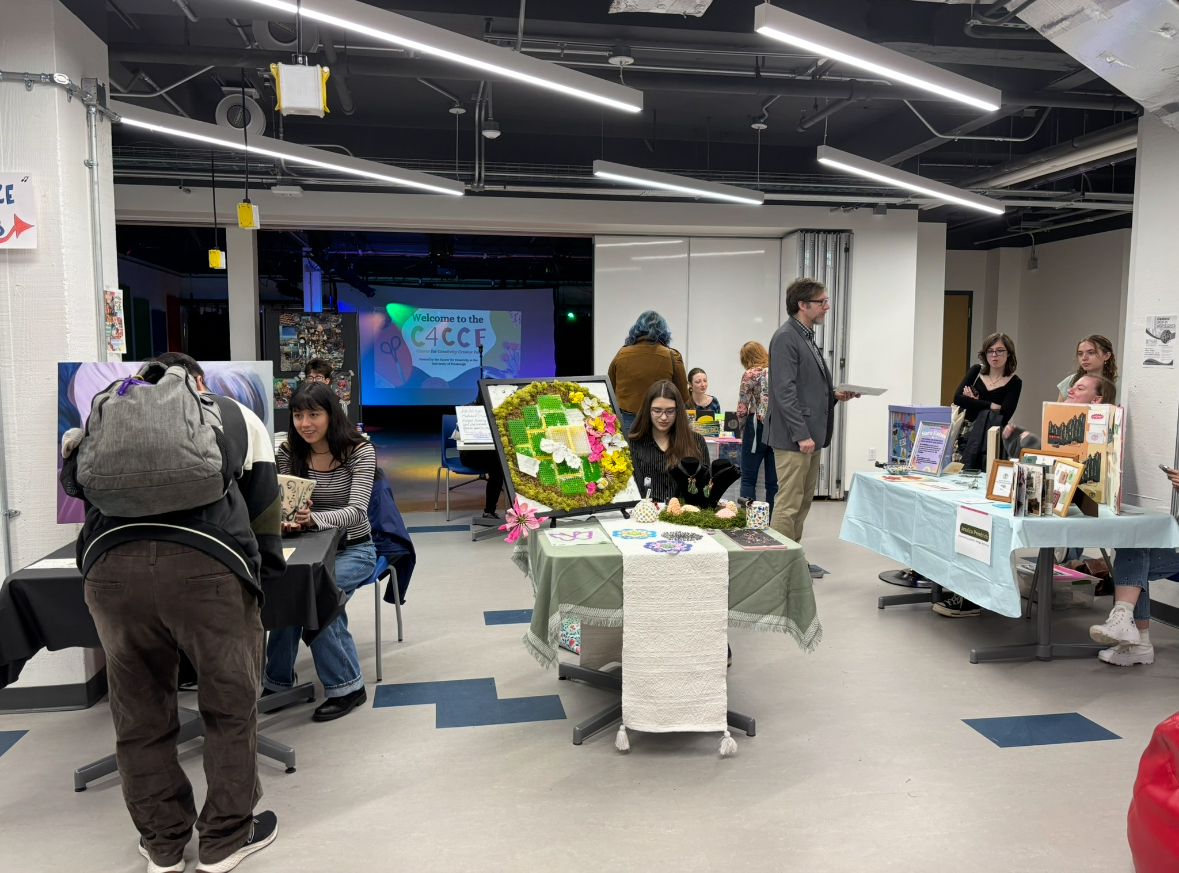The writing on the wall: insipid
February 17, 2006
“Why do you love animals called pets, and eat animals called dinner?” I’m stunned. It’s 3 a.m…. “Why do you love animals called pets, and eat animals called dinner?” I’m stunned. It’s 3 a.m. I’m in the bathroom by the computer lab in David Lawrence, and someone has written this on the door of a stall.
My mind is trying to react in so many ways that I am unable to articulate a biting retort, to laugh, to shake my head and dismiss it, to imagine someone sitting here and deciding to do this – sitting here thinking he should take out his nifty pen with its gold ink and force this inane maxim on me with all the subtlety and consideration of a rabid evangelist convinced I’m on the cusp of salvation.
I am, in fact, so shaken by my unexpected confrontation with the ferocious, the lethally insipid that my first full and complete thought is painfully academic. Some part of me regurgitates Emerson’s, “A foolish consistency is the hobgoblin of little minds.”
Albeit borrowed and limp, my “little mind” insult opens a floodgate of profane and condescending sentiments. Only a few of these sentiments manage to grab onto words on their way out of my head, so it’s a rather brief purging that quickly returns me to the familiarity of my mildly chaotic internal monologue.
As my mind skips around randomly between visions of samurai battles, trying to get “Little Bunny Foo Foo” out of my head and despising the World Trade Organization, I notice that there remains an unwelcome, obscene little thought about the graffiti.
It’s not a thought, really. It’s a feeling – a note of sympathy making itself heard in the cacophony of my tired and over-stimulated brain.
For some reason, some part of me feels that the author of this comment really meant it. He was sincere. He was trying to make a difference. I feel a perverse kinship, not with his sentiment but with his desperation.
Once heard, that note of sympathy spawns itself a discordant orchestra of hollow tones trying to justify, defend or explain my inadvertent investment in this 12-word holocaust of language and intellect.
Fortunately, before this miserable stream of words and images can really get going, I return to the computer lab. Work on the paper resumes. The nightmare of the bathroom graffiti, usually an enjoyable read, ends.
By the next morning, I’ve forgotten the entire mess. The 59U, mercifully, is empty. A firm believer in bus courtesy, I head all the way to the back. I sit down, scan the bus for attractive girls and that’s when I see it: “Loving women does not mean hating men.”
I give it little attention as morning exhaustion slows my mind to a dangerous, vagrant state that prefers panhandling for a few more minutes of oblivion to the arduous task of communicating in an even vaguely human manner. Today, I appreciate my sluggish synapses.
Usually I consider publicly displayed messages to be no more than gang colors for clever suburbanites and pseudo-intellectuals. These phrases or pictures can’t persuade. At best, they exist to amuse. More frequently, they’re tragic, desperate declarations to strangers: “Here I am. I’m a good person. Give away your organs.”
So long as the image is of nothing deep, it doesn’t much matter to whom you shout or if you do it with a bumper sticker, a T-shirt or a bathroom stall. Using the same type of medium to communicate something you believe is important just shatters the credibility of your issue.
When, how and where you communicate something matters. If you’re going to insist that someone can’t eat a cheeseburger and pet a cat, and if you believe that the world needs to be changed, don’t launch your campaign from the bathroom. If you’re just killing time, let’s stick to the obscene: cursing, mocking stereotypes and politics.
Burn the puppets with Zak Sharif at rzs8@pitt.edu.


